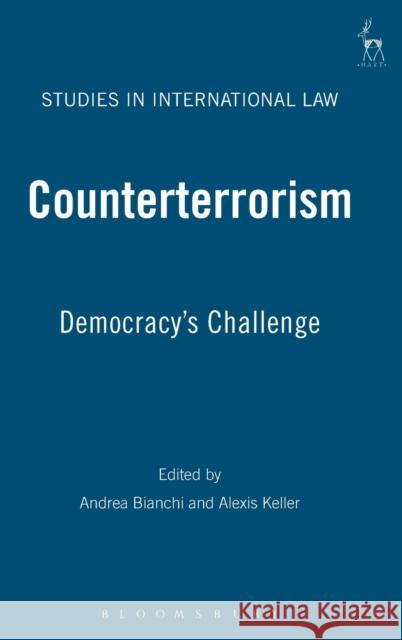Counterterrorism: Democracy's Challenge » książka
Counterterrorism: Democracy's Challenge
ISBN-13: 9781841138183 / Angielski / Twarda / 2008 / 438 str.
Terrorist violence is no novelty in human history and, while government reactions to it have varied over time, some lessons can be learned from the past. Indeed, the debate on when and how a state should use emergency powers that limit individual freedoms is nearly as old as the history of political thought. After reviewing some history of state responses to terrorist violence and their efficacy, this book assesses the effects of contemporary counterterrorism law and policies on democratic states. In particular, the book considers the interaction between national and international law in shaping and implementing anti-terror measures, as well as the difficult role of the judiciary in striking a balance between security concerns and fundamental rights. Counterterrorism: Democracy's Challenge also examines the strains this has caused on some democracies, especially a blurring in the separation of powers between the legislative, executive, and judicial branches of government, giving reason to inquire afresh whether new paradigms are needed. Finally, the issue of whether the doctrine of constitutionalism can provide an appropriate frame of analysis to encapsulate current developments in international law in response to terrorism is broached. By drawing on the expertise of historians, political scientists, and lawyers, this book promotes transdisciplinary dialogue, recognizing that counterterrorism is an issue at the intersection of law and politics that has profound implications for democratic institutions and practices.











